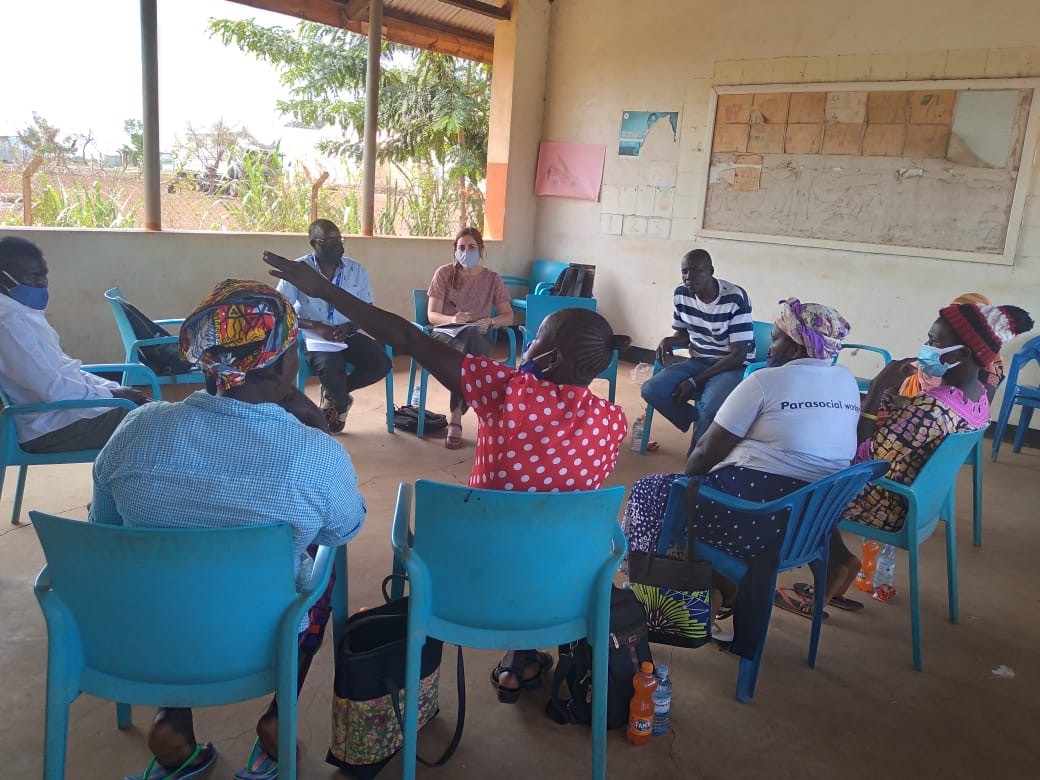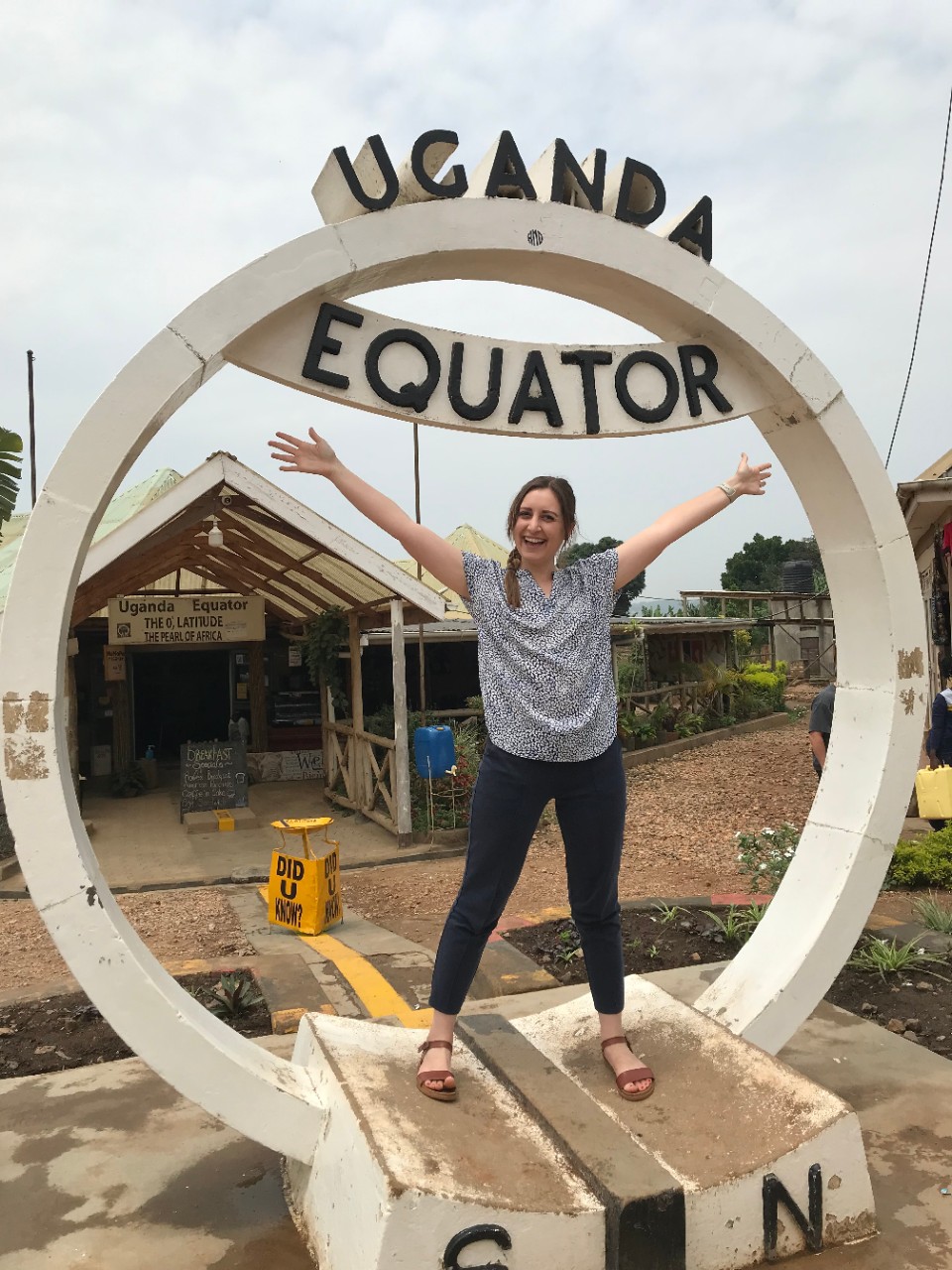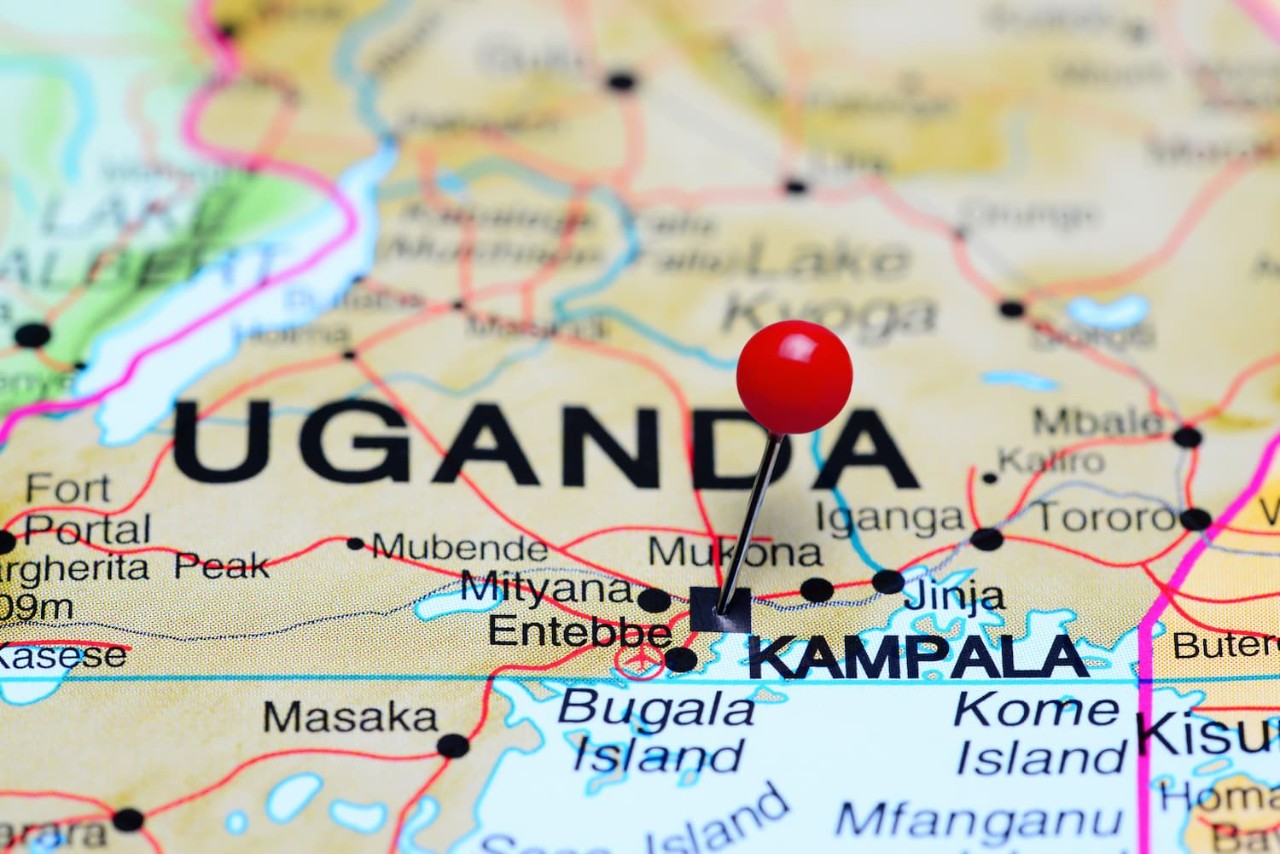
Two students in the global practice program are working in Kampala, the capital of Uganda. Illustration by iStock.
MSW students in the global practice program are interning abroad this semester, providing therapy to refugees, evaluating programs that protect children, and helping young people take action to combat climate change.
We asked three students to discuss their experiences in two countries—Uganda and Sierra Leone—and reflect on how their work has shaped their future plans. Their comments have been lightly edited for brevity and clarity.
Kati Paye, MSW’22
Field Placement: Jesuit Refugee Service, Kampala, Uganda
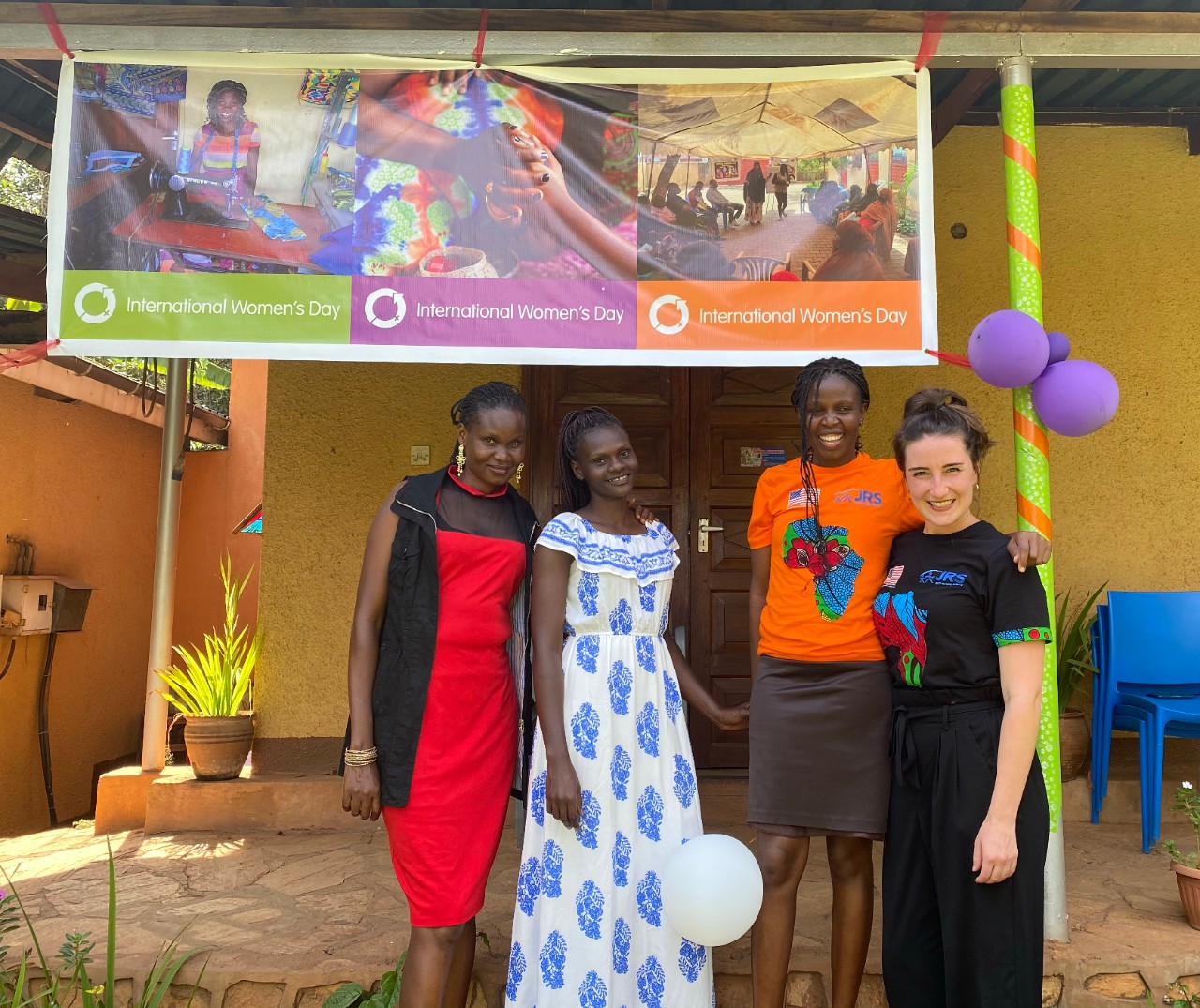
Kati Paye, far right, helped to plan the International Women’s Day celebration for JRS in Kampala. Courtesy photo.
How did you choose to work at JRS in Kampala, and what are your primary responsibilities there?
The JRS project in Kampala, the capital of Uganda, met my interest of working with people who have been displaced by conflict. As part of the Mental Health and Psychosocial Support team, I visit communities that have a high concentration of refugees from specific nations—Sudanese in Bunga, for example, or Burundians in Wakaliga—and help facilitate trainings on mental health, human rights, and sexual and gender-based violence. For the mental health training, I will inquire about the community's understanding of mental health and provide official definitions and examples of good mental health and common mental illnesses. We want to get rid of the negative stigma surrounding mental health and help the communities normalize and appropriately respond to it. The objectives are similar for the SGBV trainings, in that we want the community to be able to identify the various forms of abuse, debunk myths, where to report it, how to get help, and how to support each other.
I also provide individual and group counseling for urban refugees. Various stressors, grievances, and negative physical and emotional symptoms are endured by refugees because of conflict, loss, sexual violence, torture, natural disasters, disease, injuries, food insecurity, housing insecurity, and poverty. Many of these challenges occur in their home country and during their journey to flee, but there are continuing and new challenges in their new host country, such as discrimination, uncertainty, lack of connections, and the inability to find work.
My role as a social worker is to help these individuals find ways to positively cope, to reduce their negative symptoms, to process their experience (if they elect to revisit these memories), to build hope, and to help them find solutions to their problems. This is done through various interventions and is dependent on the person. To do any of this necessitates addressing their basic needs and environment. How can someone process their feelings or believe happiness is possible when they continue to be in survival mode? Through JRS, I am able to approve cash assistance for rent, food, and medication and make referrals to partner agencies for larger medical needs, legal support, and protection.
“I often find myself referring to my notes and assignments from the last two years at BCSSW. Various clinical and macro courses have helped me prepare for counseling sessions, draft new program activities, manage crises, research local and global policies regarding refugees, and see firsthand how the climate crisis is affecting the continent that is least responsible for these changes.”
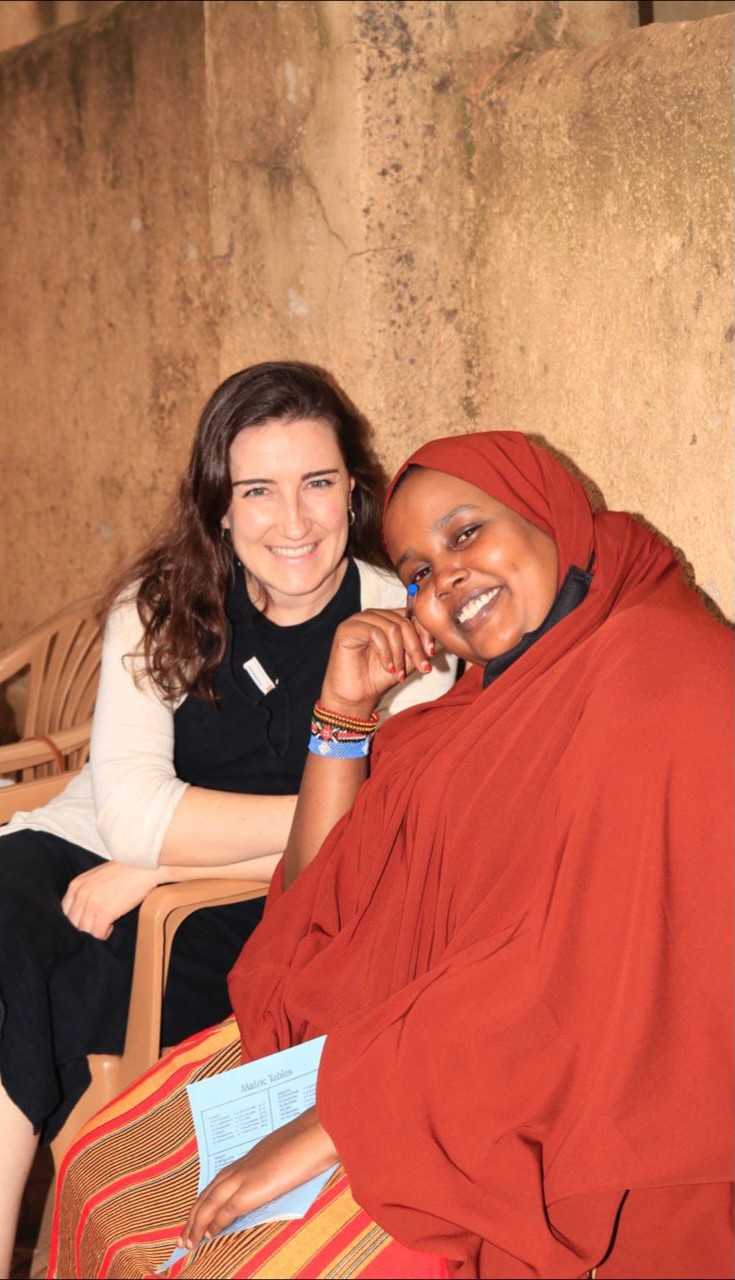
Kati Paye and a colleague at JRS. Courtesy photo.
What’s been the most rewarding part of living and working in Kampala? What’s been the most challenging part of the experience?
My colleagues and the community I reside with have been consistently welcoming, kind, and helpful as I adjust to life in Kampala. I have really enjoyed working professionally in another country and getting to provide wraparound and sustainable support to people who are coming from eight neighboring countries.
The most challenging part of this experience has been some of the cultural differences. Because of the long history of various white European and American nations colonizing and enslaving African nations, there is a continuation of a power imbalance when white people go to these countries. Even if I am aware of the history and try to have a different presence in Uganda, there is still the risk of causing harm by taking a role that a local should have, limiting people’s agency, or by perpetuating the perception of being a white savior because of my work. I first visited Uganda 10 years ago as a volunteer missionary. During that experience, I quickly felt uncomfortable and realized that I was not needed in that role. I took my decision to return seriously and am trying to be honest, humble, observant, and continuously curious as I live and work in an environment that is far from my own. I believe that this is crucial if any of us are to have a chance at appropriately participating in global social work.
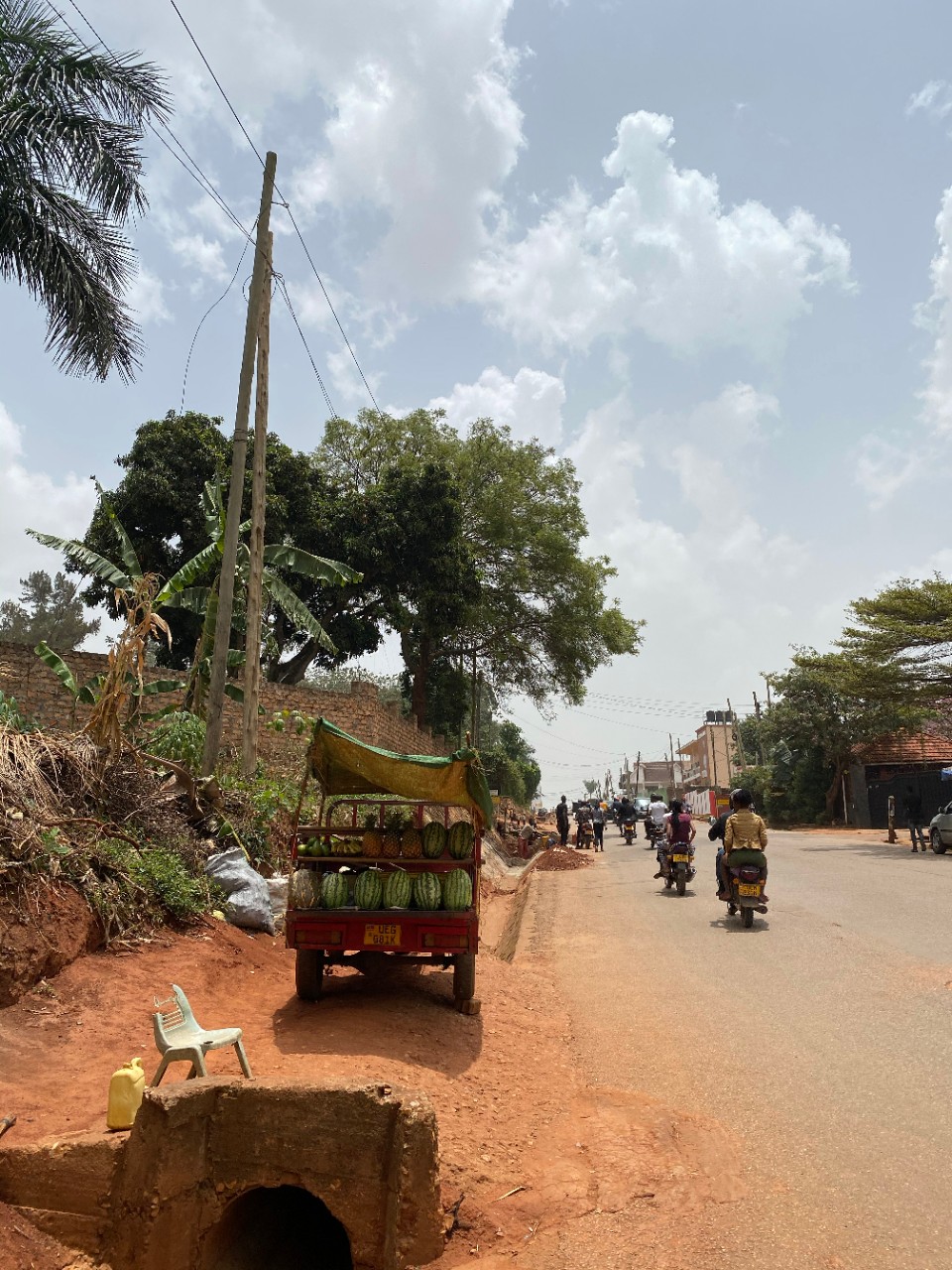
Kati Paye first visited Uganda 10 years ago as a volunteer missionary. Courtesy photo.
How did you choose BCSSW, and what do you plan to do after you earn your MSW degree in May?
After working for two non-profits over the span of five years supporting those experiencing homelessness and youth in foster care, I gained invaluable experience and learned that wanting to help is not good enough. Combating systems, creating change, and supporting and empowering people takes real skill and strategy. I considered an MSW for years before making the financial and emotional decision to uproot my life in California and apply to programs across the country. After researching and seeking counsel, I chose BCSSW because it has one of the best MSW programs in the nation and offers the global practice concentration, which is rare.
The pandemic has been difficult, but it has been the perfect time to become a better social worker. I am now nearly done with the program and will graduate as soon as I fly back to Boston this May. As for what’s next? I plan to apply for social work positions in Boston and globally that address the clinical needs and macro systems related to our world’s massive, and continuously growing, displaced population. I am interested in continuing to learn and respond to the intersections that this population has with conflict, trauma, the climate crisis, food insecurity, and the global players that are helping and hindering their situation.
Donovan Shipley, MSW’22
Field Placement: Freetown City Council, Freetown, Sierra Leone
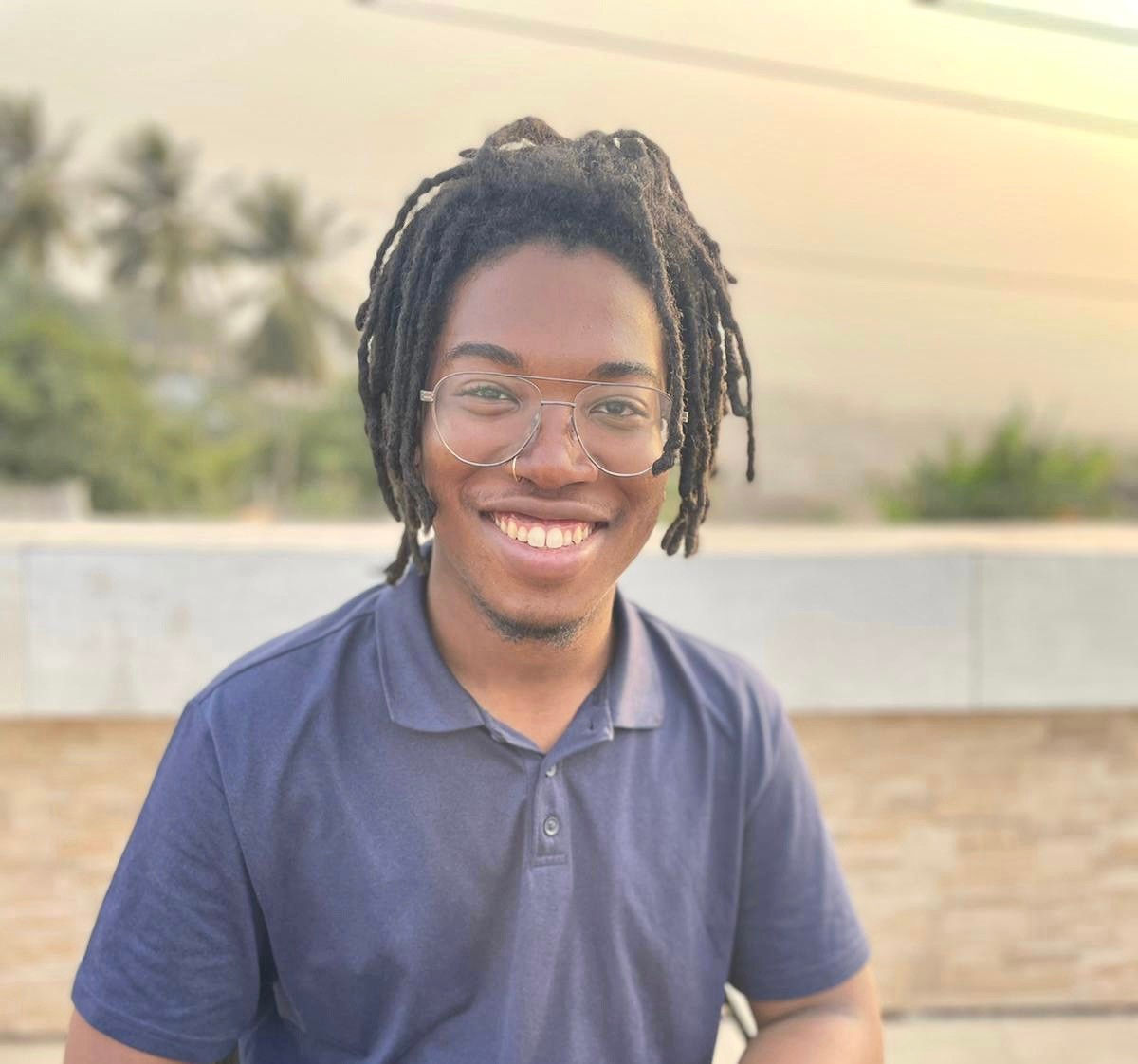
Donovan Shipley is helping young people take action to combat climate change in Freetown, Sierra Leone. Courtesy photo.
How has your experience in Freetown prepared you for work after graduation?
I picked the Freetown City Council because it gave me the opportunity to be ingrained in work in a new cultural context as well as the platform to engage in the education sector. At the Council, I’m part of the Mayor’s Delivery Unit in the Education department as an intern, and I’m primarily working with the School Leaders Support Program and assisting in efforts to promote climate action in schools. We’ve been working on a way to conduct workshops about climate action with young people, then giving them the platform to take what they learn further and display what they envision for a more climate-friendly Freetown.
Learning how to conduct needs assessments and evaluating programs from BC really helps me here because there are many things in the development space that need attention. Having a bit of insight into how to be intentional about the things we address is extremely important. I want to work in school social work, so having this macro experience of seeing how systems operate and learning to keep pushing forward and navigating in a politically charged space is something I can take with me wherever I go and helps me make more informed decisions.
“The most rewarding experience I’ve had so far was spending the weekend in a research camp at a wildlife sanctuary closer to the Liberian border. I was able to get away from the city to see wild monkeys, birds, and other wildlife in their natural habitat and in the process learn more about conservation efforts in Sierra Leone. ”
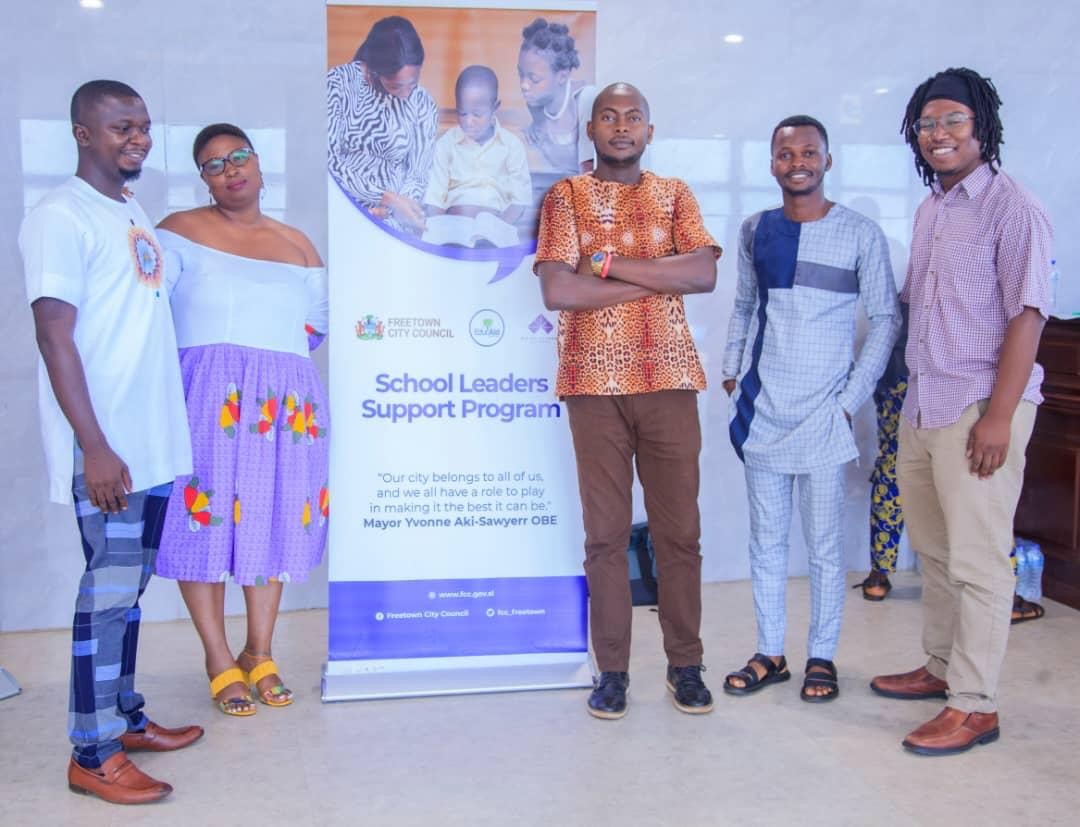
Donovan Shipley, far right, plans to become a school social worker. Courtesy photo.
How did you choose BCSSW?
I chose to enroll at BC School of Social Work because I felt that the program would provide a thorough academic background while also giving me the flexibility to put everything I learn into practice, whether it’s in Boston or around the world. I plan to graduate in May, so I’m in my last semester now. I want to be a school social worker and gain as much experience as I can in the education system and engage with students directly.



